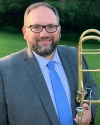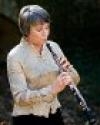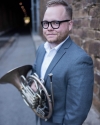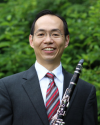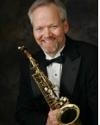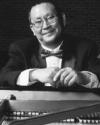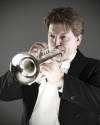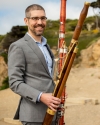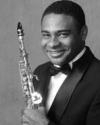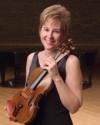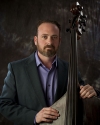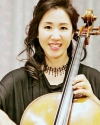Mission Statement
The Master of Music in Performance degree in the Hayes School of Music is based on the pillars of performance, entrepreneurship, scholarship and pedagogy, relevance, and wellness. These fundamental pillars support musicians in developing versatility and leadership for successful and independent performance careers in the 21st century. Close mentorship between the student and the faculty is central to the program, which facilitates exceptional opportunities to excel in the art of music.
Admissions Information
Degree Course Requirements
Course Requirements for the Master of Music in Performance Semester Hours Required (minimum): 32 to 35 - varies by concentration - see below. Course Requirements for students who entered the program before Fall 2022 can be found here. | ||
|---|---|---|
| Required Courses |
| 23 |
| Concentration | Performance Concentration (Codes: Trumpet, 558Q; Horn, 558F; Trombone, 558P; Euphonium, 558Y; Tuba 558R) Semester hours required for the degree (minimum): 32
| 9 |
Recital Requirements
- A recital will be presented while the student is in residence and actively studying the applied major instrument. Difficulty level of the literature performed will be equal to or greater than that of the entrance audition. A jury performance will be given for the woodwind or brass faculty two to four weeks in advance of the scheduled recital.
- A recital of forty-five to sixty minutes that includes representative works from at least two different musical style periods will be presented. With the approval of the applied teacher, one selection may be for chamber ensemble.
Assistantships and Scholarships
Mission Statement
The Master of Music in Performance degree in the Hayes School of Music is based on the pillars of performance, entrepreneurship, scholarship and pedagogy, relevance, and wellness. These fundamental pillars support musicians in developing versatility and leadership for successful and independent performance careers in the 21st century. Close mentorship between the student and the faculty is central to the program, which facilitates exceptional opportunities to excel in the art of music.
Overview
The Masters in Music in Performance with a concentration in Collaborative Piano is a 34-semester hour academic and performance program that allows students to develop the skills needed to be a professional collaborative artist in both instrumental and vocal genres. The program consists of advanced courses in applied music, research, musicology, and literature, along with courses focusing on chamber ensembles and practicum experience with various performers
The graduate student in the collaborative piano program will:
- Be offered extensive performance opportunities to collaborate with other musicians
- Gain wide exposure to operatic and art song literature and standard instrumental repertoire
- Become proficient in sight reading of literature
- Develop the skills necessary to coach languages in German, Italian, and French
- Develop language proficiencies using the IPA (International Phonetic Alphabet)
- Develop and practice rehearsal techniques in chamber music settings
- Develop and apply higher-order thinking skills in order to communicate and rehearse effectively with other performers
- Develop the skills necessary in order to make orchestral reductions pianistic
- Develop skills, knowledge, and experience necessary for professional employment, professional development, and/or further graduate study in collaborative piano
Admissions Information
Degree Course Requirements
| Course Requirements for the Master of Music in Performance Semester Hours Required (minimum): 32 to 35 - varies by concentration - see below. | ||
|---|---|---|
| Required Courses |
| 23 |
| Concentration | Collaborative Piano (Code: 558W)
| 12 |
Assistantships and Scholarships
View general Assistantship and Scholarship information
Collaborative Piano Assistantships
The Collaborative Piano Assistantship may involve accompanying large ensembles, chamber ensembles such as Quintessential, vocal and/or instrumental recitals for a $9,000 stipend for a year.
Mission Statement
The Master of Music in Performance degree in the Hayes School of Music is based on the pillars of performance, entrepreneurship, scholarship and pedagogy, relevance, and wellness. These fundamental pillars support musicians in developing versatility and leadership for successful and independent performance careers in the 21st century. Close mentorship between the student and the faculty is central to the program, which facilitates exceptional opportunities to excel in the art of music.
Admissions Information
Degree Course Requirements
Course Requirements for the Master of Music in Performance Semester Hours Required (minimum): 32 to 35 - varies by concentration - see below. Course Requirements for students who entered the program before Fall 2022 can be found here. | ||
|---|---|---|
| Required Courses |
| 23 |
| Concentration | Performance Concentration (Code: 558G)
| 9 |
Recital Requirements
A recital of approximately 45 minutes of music from diverse style periods will be presented while the student is enrolled in applied guitar study. Literature of difficulty equal to or greater than that of the entrance audition will be selected with approval of the applied instructor. A recital jury will be performed for the faculty two to four weeks in advance of the recital.
Assistantships and Scholarships
View general Assistantship and Scholarship information
Guitar Assistantships
The guitar assistantship includes the following responsibilities: Teaching class guitar, assisting with guitar orchestra rehearsals, Guitarfest in the Spring, and occasionally with fulfilling various needs of the Guitar Program. The award includes an $8,500 stipend per year.
Mission Statement
The Master of Music in Performance degree in the Hayes School of Music is based on the pillars of performance, entrepreneurship, scholarship and pedagogy, relevance, and wellness. These fundamental pillars support musicians in developing versatility and leadership for successful and independent performance careers in the 21st century. Close mentorship between the student and the faculty is central to the program, which facilitates exceptional opportunities to excel in the art of music.
Admissions Information
Degree Course Requirements
Course Requirements for the Master of Music in Performance Semester Hours Required (minimum): 32 to 35 - varies by concentration - see below. Course Requirements for students who entered the program before Fall 2022 can be found here. | ||
|---|---|---|
| Required Courses |
| 23 |
| Concentration | Performance Concentration (Code: 680B) Semester hours required for the degree (minimum): 35
| 12 |
Assistantships and Scholarships
View general Assistantship and Scholarship information
Specific instrumental conducting assistantships are available. All application materials should be received by February 1 and audition completed by March 1.
Mission Statement
The Master of Music in Performance degree in the Hayes School of Music is based on the pillars of performance, entrepreneurship, scholarship and pedagogy, relevance, and wellness. These fundamental pillars support musicians in developing versatility and leadership for successful and independent performance careers in the 21st century. Close mentorship between the student and the faculty is central to the program, which facilitates exceptional opportunities to excel in the art of music.
Admissions Information
Degree Course Requirements
| Course Requirements for the Master of Music in Performance Semester Hours Required (minimum): 32 to 35 - varies by concentration - see below. | ||
|---|---|---|
| Required Courses |
| 23 |
| Concentration | Performance Concentration (Code: 558K)
| 9 |
Recital Requirements
- The candidate must present a recital of at least one hour in length. Memorization is optional.
- The recital program will consist of selections drawn from the principal historical periods of organ composition and must include a major work of J.S. Bach, a major Romantic period composition, and a significant organ work from the Twentieth Century.



